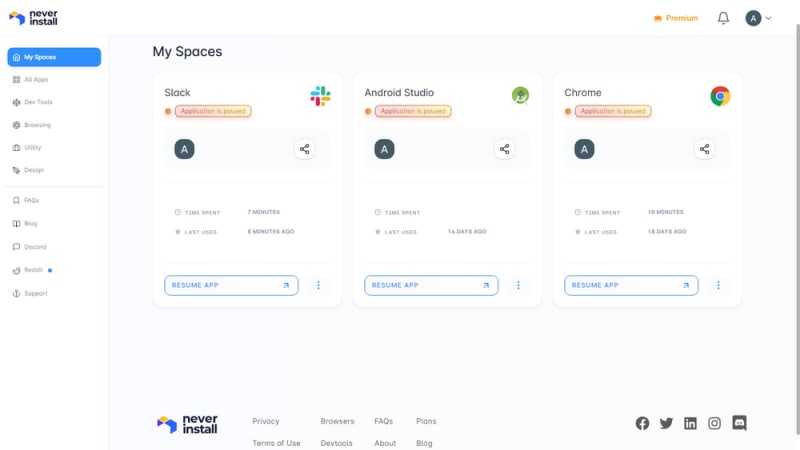The operating systems of old, the Mac OS, Linux, and Windows, have noticed much change in how users understand their utility, but not how one would expect. While these operating systems are still necessary to operate the machines themselves, the way we use them is changing dramatically.
This blog was originally published HERE.
An unending ocean of web applications
Where once the internet was a collection of static documents, forms, and rudimentary HTML websites, it has now become a universe of applications that rely not on the OS but on the browsers’ capabilities. With the advent of web apps, developers are now creating OS-agnostic products in a bid to provide cross-platform accessibility. Consequently, the reach of products has now increased manifold, dependent more on internet accessibility than on the user's hardware.
Consider apps like Android Studio, Slack, and even the browser itself, such as Chrome, that leverage cloud computing to run their resource-intensive selves over the browser, reducing hardware dependency and barriers to productivity.
Moving toward a more profound user experience, consider Neverinstall. We have developed a solution that helps developers, designers, and other typical desktop users move their digital workspaces to their browsers. Limited by hardware and even lower internet bandwidth, desktop users often felt restrained when learning new languages, software or skills. This is where we found a gap in the market for a solution that could help deliver the capabilities of a full-fledged operating system over the cloud.
Neverinstall runs machines in a cloud-native environment and streams any GUI application to the users' desktop, handling the heavy lifting on our physical servers.
Setting the golden standard
A browser running apps is now becoming the norm. The multiplatform approach of web apps, coupled with the mutability of browsers, is helping everyone from the everyday Joe to Wall Street and even Uncle Sam find a use case for the future of browser-focused computing. It simply doesn’t matter what machine the user prefers. We now have a browser on our phones, ‘smart’ televisions, and even refrigerators. If there is a browser, the application will work.
And that is the beauty of a browser becoming an OS. A move toward computing independence, free from the bounds of machines, governed by today's software instead of yesterday's hardware.





Top comments (0)